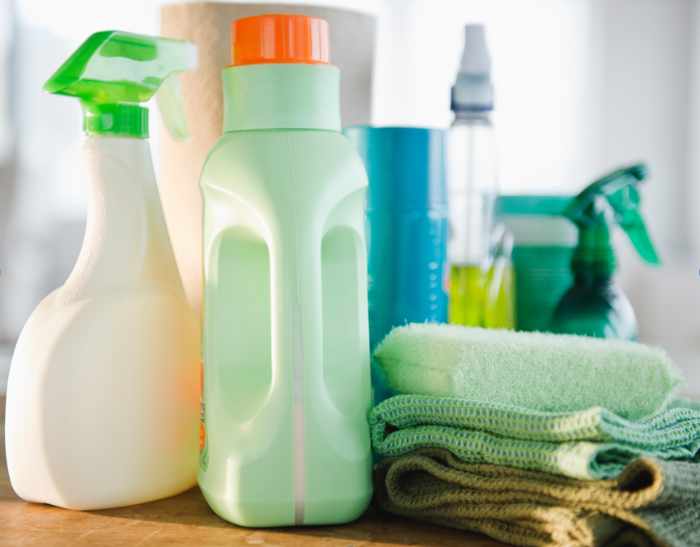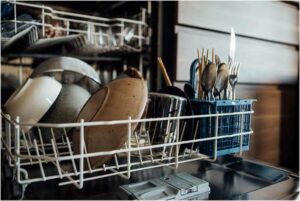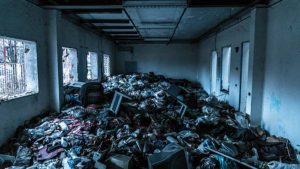Household chemicals play an essential role in everyday life, from cleaning products to pesticides and paints. When you want to protect your home from pests certain chemicals will certainly be needed. But there’s a potential danger as well. Knowledge is power. That’s why we’re sharing our guide to proper household chemical storage.

Why Proper Chemical Storage Matters
Mismanagement of household chemicals can lead to accidents, ranging from minor skin irritations to life-threatening fires or poisonings. Chemicals stored in unsuitable locations, such as near heat sources or within reach of children, create a ticking time bomb. Beyond immediate risks, the improper containment of chemicals can result in leaks or spills, causing costly damage to surfaces and even contaminating groundwater.
Proper storage not only minimizes these hazards but also extends the shelf life of your products, reducing waste and saving money. A well-organized system ensures you can easily locate and use the chemicals you need without unnecessary risk or confusion.
Homeowner’s Guide to Proper Household Chemical Storage
We’ve highlighted four main areas in our guide to proper household chemical storage. If you stay on top of these, you’ll be in great shape.
1. Choose the Right Storage Location
Select cool, dry, and well-ventilated spaces for chemical storage. Areas prone to extreme heat, such as garages or near stoves, are poor choices for flammable items. Consider using locked cabinets to keep chemicals secure and away from curious children or pets. Basements and utility rooms often work well, provided they are free from dampness that could compromise packaging integrity.
2. Keep Chemicals in Original Containers
Manufacturers design chemical packaging materials to safely contain their products, including built-in safeguards against leaks and spills. Avoid transferring chemicals into unmarked or improper containers, as this can lead to confusion and dangerous chemical reactions. Always retain the original labels for safety instructions and hazard warnings.
3. Separate Incompatible Substances
Some household chemicals can react dangerously when stored together. For example, bleach and ammonia produce toxic gases if mixed. Group chemicals by type, such as flammables, corrosives, and pesticides, and store them in separate containers or compartments to avoid accidental cross-contamination.
4. Invest in Secondary Containment
Use spill trays, bins, or plastic tubs to catch leaks or drips from stored chemicals. Secondary containment provides an extra layer of protection against spills, especially for liquid products. This practice is particularly important for substances like motor oil, paints, or cleaning solutions stored on shelves where leaks could drip onto other items or floors.
Tips for Organizing Household Chemicals
Label Everything Clearly
Even with the original packaging intact, adding visible labels to the outside of storage cabinets or bins can streamline organization. Simple tags like “Cleaning Supplies” or “Garden Chemicals” can help family members quickly locate what they need while keeping unrelated items separate.
Dispose of Unneeded Chemicals Properly
Old or unused chemicals that accumulate over time can become a safety hazard. Contact local waste management services to learn about chemical disposal programs in your area. Never pour chemicals down the drain or dispose of them in regular trash, as this can lead to environmental harm.
Educate Your Household
A safety plan is only as good as its implementation. Ensure everyone in your household understands the importance of proper chemical storage and knows where to find safety data sheets (SDS) for frequently used products.
Building a Safer Home
Creating a safe home environment involves more than securing windows or installing smoke detectors—it includes safeguarding against hidden dangers like poorly stored chemicals. With proper organization, the right storage solutions, and a focus on safety, you can significantly reduce risks while protecting your family, property, and the environment.
Implementing these measures is not just a task but a commitment to maintaining a well-functioning, hazard-free household. Small efforts today can lead to lasting peace of mind tomorrow. For more information, check out the accompanying resource.



